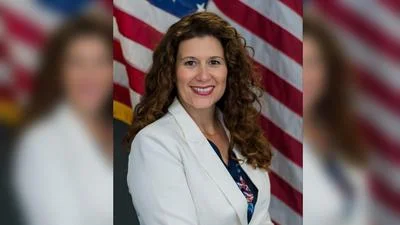Congressman Gus M. Bilirakis | Wikimedia Commons
Congressman Gus M. Bilirakis | Wikimedia Commons
Representatives Gus Bilirakis (R-FL), Suzanne Bonamici (D-OR), Glenn Grothman (R-WI), Joe Morelle (D-NY), Brian Fitzpatrick (R-PA), Brian Higgins (D-NY), and Doris Matsui (D-CA) have introduced the Cancer Drug Parity Act in the House. The bill aims to lower costs for cancer patients who are prescribed oral medications by requiring health insurers to provide coverage that is equivalent to conventional intravenous (IV) treatments.
Oral cancer treatments have proven to be a game-changer for cancer patients, as they can be administered at home and are less intrusive than IV treatments. However, these treatments have been costly for patients. A study found that one in eight patients faced copayments of $2,000 or more for their first prescription of oral cancer medications.
Representative Gus Bilirakis emphasized the importance of giving cancer patients access to the best treatment options: "Cancer patients should have access to whichever treatment gives them the best chance to fully recover. This important bill addresses this problem and enables patients to keep their primary focus on getting well."
Representative Glenn Grothman highlighted the need for affordable access to effective cancer treatments: "Every American deserves the most effective cancer treatments available at the most affordable cost. As oral medications increase in popularity among cancer patients, we cannot allow outdated health insurance plans to prevent patients from opting for their preferred method of treatment."
Representative Suzanne Bonamici emphasized the need to level the playing field for cancer patients: "Oral cancer treatments are an effective option for many patients and can allow for care at home and better disease management. Unlike traditional IV treatments, oral chemotherapy is typically not covered by health insurance plans, leading to high costs and unaffordable co-payments for patients."
The Cancer Drug Parity Act is a bipartisan effort to address the financial burden faced by cancer patients. It is estimated that two million Americans will be diagnosed with cancer in 2023 alone. Representative Brian Fitzpatrick expressed his support for the bill, stating, "I am proud to join my colleagues in leading the bipartisan Cancer Drug Parity Act to expand parity protections for cancer patients who previously could not afford these lifesaving treatments."
Representative Joe Morelle emphasized the importance of bridging the gap between outdated technology and cutting-edge therapies: "By empowering patients to access the best care available, this act offers hope and relief when they need it most."
The Cancer Drug Parity Act aims to ensure that health insurance coverage evolves alongside advancements in cancer treatment. Representative Doris Matsui stated, "Families and patients battling cancer should never have to forgo treatment or necessary care because of crippling costs. The bipartisan Cancer Drug Parity Act would end the disparity in coverage for oral treatments – putting power back in the hands of patients and providers to determine the best path to recovery."
The International Myeloma Foundation also expressed their support for the bill, highlighting the need for increased access to life-saving treatments. They stated, "By eliminating financial barriers, this act empowers individuals battling cancer and their healthcare providers to make informed treatment decisions without undue financial strain."
The American Cancer Society Cancer Action Network emphasized the importance of ensuring access to innovative therapies for cancer patients. Lisa Lacasse, President of the American Cancer Society Cancer Action Network, said, "Ensuring health insurance plans cover cancer treatment at an affordable cost, regardless of how it's administered, is key to ensuring access to the most innovative therapies for patients across the country."
Oral chemotherapy is becoming more common for many types of cancer, but health insurance coverage for different types of cancer treatments is not uniform. Under current law, traditional IV/injectable treatments are routinely covered, while orally administered anti-cancer medications are generally covered under the prescription drug component, resulting in a considerable disparity in cost. The Cancer Drug Parity Act aims to prohibit insurance companies from imposing pricier copayments on cancer patients compared to IV treatments.
More than 40 states, including Wisconsin, have enacted "oral parity" laws, which prevent health plans from creating separate cost-sharing requirements for oral versus IV cancer medicines. These laws have made a significant difference for those suffering from cancer.
The Cancer Drug Parity Act will expand oral parity protections to privately-insured patients under federal regulation and prevent insurers from covering oral and self-administered medicines at different cost-sharing rates than IV chemotherapy. The bill will implement these requirements for health plans that already cover both oral and IV chemotherapy treatments.
The introduction of the Cancer Drug Parity Act is a significant step towards lowering costs for cancer patients and ensuring equal access to life-changing treatments.
To find out more, go to this link: https://bilirakis.house.gov/media/press-releases/bilirakis-files-bill-lower-costs-cancer-patients


 Alerts Sign-up
Alerts Sign-up